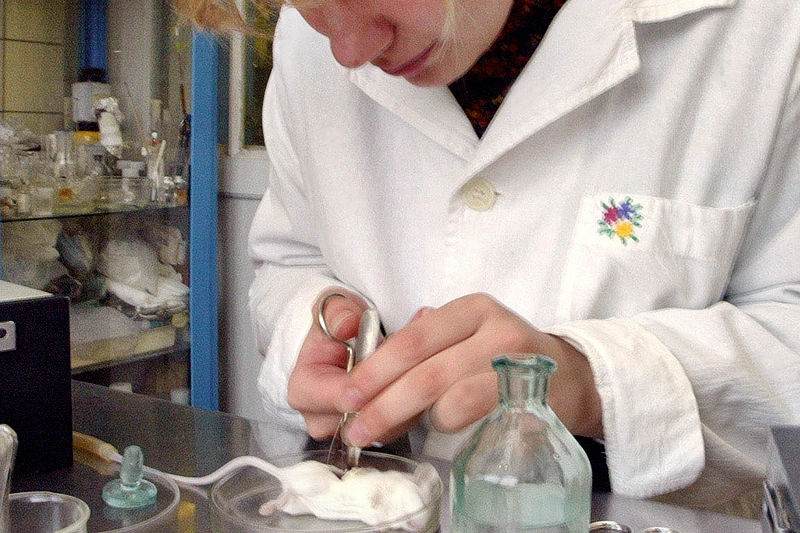
OAN’s Abril Elfi
2:00 PM – Thursday, March 28, 2024
According to a study, recipients of bone marrow transplants with “potentially hazardous” genes may develop Alzheimer’s disease (AD) later on.
The journal Stem Cell Reports published the new study on Thursday.
In the event that cases go unreported, researchers in Canada are now urging that all donors undergo screening for Alzheimer’s.
The mice in the new study had received bone marrow transplants containing stem cells from donors who had familial Alzheimer’s disease.
This type of Alzheimer’s disease is caused by a defective form of the amyloid precursor protein (APP) gene, which can cause plaques to form and the brain to deteriorate.
The study seemed to demonstrate, for the first time, that the process originates outside the central nervous system and then moves to the brain, where it results in the cognitive decline linked to the disease.
The researchers discovered that, in almost half of the mice, cognitive decline was evident as early as six months of age.
In order to potentially stop the disease from spreading, the authors of the new study demanded that donors of blood, tissues, and organs undergo screening for Alzheimer’s. However, they also pointed out that further study is required to determine whether the effect holds true for humans and other animals as well.
“This supports the idea that Alzheimer’s is a systemic disease where amyloids that are expressed outside of the brain contribute to central nervous system pathology,’”stated Dr. Wilfred Jefferies, senior study author and immunologist at the University of British Columbia. “As we continue to explore this mechanism, Alzheimer’s disease may be the tip of the iceberg and we need to have far better controls and screening of the donors used in blood, organ and tissue transplants as well as in the transfers of human derived stem cells or blood products.”
Nevertheless, to date, no cases of Alzheimer’s have been connected to organ or bone marrow donations.
Two groups of mice were used in the study: those with a normal functioning APP gene and those lacking an APP gene (APP Knockouts). The researchers used bone marrow, a spongy substance found in the center of bones, to transplant stem cells containing APP.
Researchers discovered that while mice lacking the APP gene showed the telltale symptoms of Alzheimer’s disease in just six months, mice with a functional APP gene showed signs of cognitive decline in nine months.
Mice at risk for familial Alzheimer’s disease typically exhibit symptoms between the ages of 11 and 12 months. These symptoms can include fearlessness and loss of both short and long-term memory in the mice. Amyloid accumulation and blood-brain barrier leaks are two indicators in the brain.
“The fact that we could see significant behavioral differences and cognitive decline in the APP-knockouts at six months was surprising but also intriguing because it just showed the appearance of the disease that was being accelerated after being transferred,” said Dr. Chaahat Singh, lead study author and neuroscientist at the University of British Columbia.
According to the research, people who have a normal APP gene are more prone to the disease, and the mutated APP gene in donor stem cells may prompt the disease in those who do not have the gene.
The researchers came to the conclusion that amyloid proteins, which are not found in the central nervous system, can cause Alzheimer’s disease.
The results follow a UK study which discovered evidence that at least five patients who received growth hormone injections containing “seeds” of amyloid-beta protein taken from deceased patients’ bodies “caught” early-onset Alzheimer’s later in life.
Over 1,800 additional patients who received the treatment were classified as “at risk.”
Stay informed! Receive breaking news blasts directly to your inbox for free. Subscribe here. https://www.oann.com/alerts

